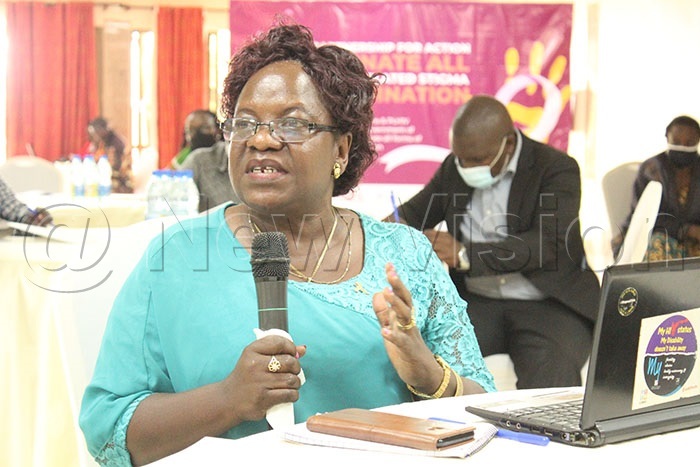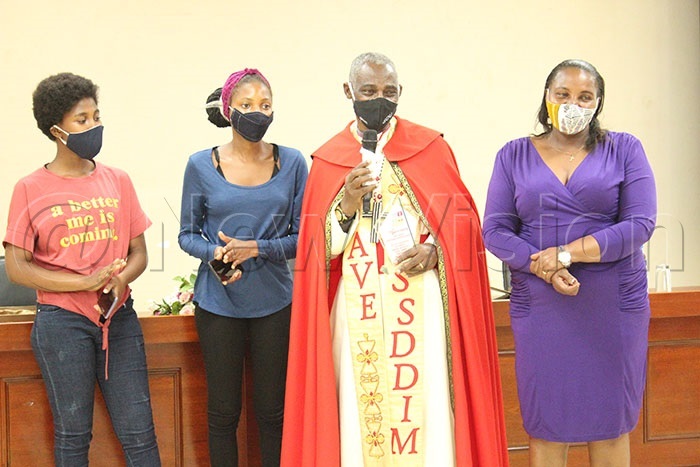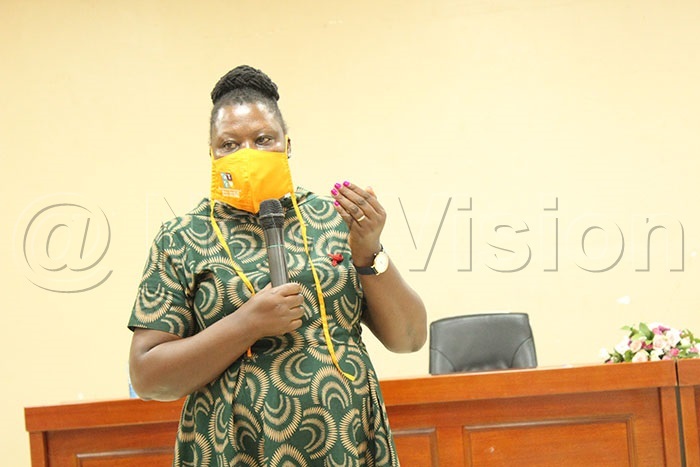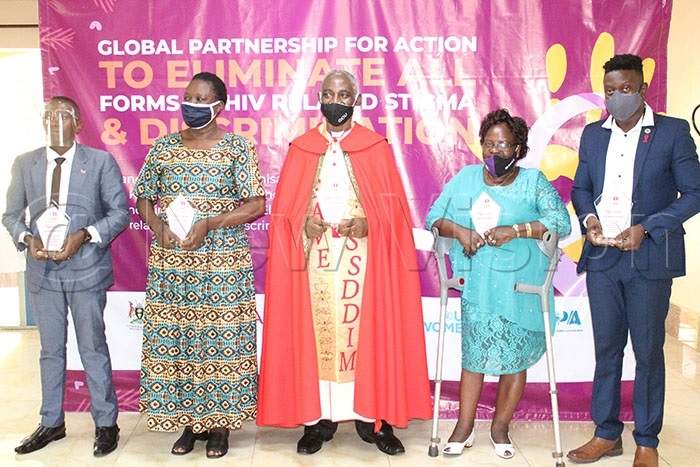Employers tasked to end workplace HIV stigma
Dec 01, 2020
An anonymous employer a resident of Mutungo says she once had to lay off her maid who was falling sick more often the moment she discovered that she was HIV-positive.

WORLD AIDS DAY|DISCRIMINATION|EMPLOYERS
KAMPALA - Employers have been tasked to end HIV related stigma and discrimination against Persons Living with HIV at their workplaces.
The call was made ahead of World AIDS Day at a national dialogue by non-governmental organizations hosted in Kampala on Friday (November 27, 2020).
Betty Kwagala, the executive director of Positive Women with Disability Uganda (POWODU), revealed that they had recorded many cases of women losing their jobs after their HIV status is known by their employers.
"Most women living with HIV end up losing their jobs the moment it is discovered that they are HIV positive forgetting that majority of these are the breadwinners in most of the homes they come from," Kwagala said.
She also added that even at the workplaces, there is a lot of gossip among workmates relating to one's health status which makes many people living with HIV feel out of place. The gossip in the corridors is stigmatizing, she said.
We also have cases where women do not want to take their antiretroviral drugs because of fear that their workmates will laugh at them.
When it comes to relationships, Kwagala said many families are no longer at ease.
"Our husbands think they will be a laughing stock the moment people find out they are married to an infected person therefore many end up abandoning their families or make it routine to show-up late in the night when no one can see them," Kwagala said.

According to Kwagala, students living with HIV will perform as expected the moment their health status becomes public by staff or fellow students.
"We have had cases where students living with HIV/Aids will come out to say they are not going back to school simply because a certain group of people has made them feel uncomfortable due to their health status," she said.
According to Kwagala, people with disabilities living with HIV are also not planned for when it comes to equal service delivery.
"Many times we have found it challenging with places where we seek medical services whereby the hospital has no ramps to help a person with disability seek their medical services," she says.
Meanwhile, Lillian Mworeko, the executive director of International Communities of Women Living with HIV Eastern Africa (ICWEA), said service providers also lack work ethics when it comes to handling people living with HIV.
"If you're a disabled person living with HIV trying to buy a condom a medical personnel will end up mocking you as if you are not human something that makes many shun from seeking medical services," she said.
Alex Mulindwa a former secondary teacher and a resident of Nalusuga Village, Nangabo subcounty, Wakiso district says in 2016 he lost his job as a teacher after his school administration discovered that he was HIV Positive.
Mulindwa says after applying in several schools for three years, only one employed him and after working for two terms he was sacked due to his status.

"Our employees think a person suffering from HIV/Aids could not carry out their work effectively which may not be the case so long as a person takes up their medication properly," he says.
Today Mulindwa operates a small business in his home village to support his family.
Mulindwa is among the many that have lost their jobs since they are HIV/ Aids positive.
What employers say
An anonymous employer a resident of Mutungo says she once had to lay off her maid who was falling sick more often the moment she discovered that she was HIV-positive.
She says this was risky as she feared that the maid could infect her child with the virus.
"I loved her because she was caring to my daughter, however, I could not risk the life of my child so I hired someone else," she says.

What doctors say
However, Dr Sabrina Kitaka a senior pediatrician, says the risk of an employee passing on HIV to the people they live with is remote if they are counselled concerning their HIV status and they observe the basic principles while they carry out their duties.
Kitaka says HIV is spread from person to person when the uninfected individual comes into contact with bodily fluids of the infected party.
The bodily fluids deemed to be infectious are blood, sexual fluids, and breast milk.
"You realise that it is not easy for one to come into contact with the above mentioned bodily fluids through normal social interactions. What most people seem to fear is the intentional transmission of HIV by people living with the disease who are angry and deliberately go out of their way to harm others," she adds saying this can also be done by anyone outside your workplace or house.
What ministry say
According to Dr Joshua Musinguzi the assistant commissioner AIDS control division, it is illegal for employers and institutions to discriminate against persons due to their health status, however, he advises the public to report in case they are threatened to lose their jobs because they are HIV-positive.
"To discriminate a person due to their status is illegal and such people have a right to seek for justice in courts of law," Musinguzi says.

Plan to end HIV
Early last week Esther Mbayo, minister for the presidency told journalists that Uganda has attained the UNAIDS target of 90 percent of all people living with HIV enrolled on treatment and 90 percent of those on antiretroviral therapy.
Mbayo however, noted that to achieve the goal of ending AIDS as a public health threat by 2030 HIV related stigma and discrimination should stop starting with the individuals, Households, and at Community levels.
According to UNAIDS, HIV epidemic remains a major public health threat in Uganda with an estimated 1.4 million people living with the virus, 53,000 new HIV cases registered annually, and an estimated 21,000 Ugandans have died of AIDS-related illnesses.
After the event, several HIV advocates were awarded for their instrumental role in fighting the epidemic more so during the struggle against COVID-19 and its subsequent Lockdown.
